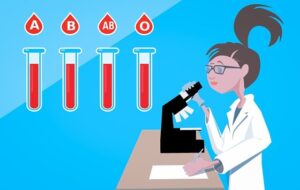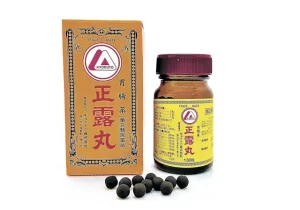CAR-T therapy by Nobel Prize team: The total remission rate is 100%
- Gut Bacteria Enzymes Offer Hope for ABO Universal Blood Transfusions
- Well-Known Japanese Medicine Exposed for 30 Years of Data Falsification
- Oregon Reverses Course: From Decriminalization to Recriminalization of Drug Possession
- Why Lecanemab’s Adoption Faces an Uphill Battle in US?
- Yogurt and High LDL Cholesterol: Can You Still Enjoy It?
- WHO Releases Global Influenza Vaccine Market Study in 2024
CAR-T therapy by Nobel Prize team: The total remission rate is 100%
- Was COVID virus leaked from the Chinese WIV lab?
- HIV Cure Research: New Study Links Viral DNA Levels to Spontaneous Control
- FDA has mandated a top-level black box warning for all marketed CAR-T therapies
- Can people with high blood pressure eat peanuts?
- What is the difference between dopamine and dobutamine?
- How long can the patient live after heart stent surgery?
CAR-T therapy by Nobel Prize team: The total remission rate is 100%.
The total remission rate is 100%: The CAR-T therapy developed by the Nobel Prize team has amazing effects.
In October 2017, the FDA approved the launch of the first CAR-T cell therapy. Humans have entered the era of cell therapy. CAR-T cell therapy has achieved good clinical results in blood cancers.
At present, several CAR-T therapies on the market use autologous T cells from the patient .
The advantage of autologous cell therapy is that it can function in the patient for a long time without causing rejection, but this method also exists.
With many limitations, autologous cell therapy is time-consuming, some acute leukemia patients do not have enough time to wait, and many severe patients do not have enough T cells themselves for engineering.
Therefore, many research teams and companies have begun to develop allogeneic cell therapy .
The cell source of allogeneic cell therapy is more diverse, which can be peripheral blood , umbilical cord blood , and artificial induced pluripotent stem cells (iPSC) , etc.
This method is easier to batch production, which is less time-consuming, could address many of the limitations of autologous cell therapy.
Among them, Caribou Biosciences , founded by Jennifer Doudna , a Nobel Prize winner and one of the founders of CRISPR gene editing technology, is one of the representatives.

On May 12, 2022, Caribou Biosciences announced that its off-the-shelf CAR-T therapy CB-010 based on CRISPR gene editing developed in a Phase 1 clinical trial for the treatment of relapsed and refractory B-cell non-Hodgkin lymphoma . This is also the first time Caribou has published human clinical trial data.
Published data showed an overall response rate (ORR) of 100% and a complete response rate (CR) of 80% among the five evaluable patients .
Of the 4 patients who have achieved complete remission so far, this remains true three months after treatment, with the longest recorded complete remission at six months.

It is reported that Caribou will further announce detailed data at the European Association of Hematology (EHA) annual meeting next month.
CB-010 therapy is an allogeneic anti-CD19 CAR-T cell therapy based on CRISPR gene editing . Gene editing using Caribou ‘s proprietary chRDNA technology, chRDNA, the CRISPR hybrid RNA-DNA technology, compared to CRISPR-Cas9, chRDNA has a high degree of specificity and a lower level of off-target editing, enabling multiple gene editing, including multiplex gene insertion.
CB-010 therapy performed gene editing in 3 aspects:
1. Knock CD19 CAR site-specifically into T cells;
2. Knock out the TRAC gene (T cell receptor alpha constant region) , after knockout, the T cell receptor (TCR) on the surface of T cells is cleared, which can avoid graft-versus-host reaction (GvHD) ;
3. Knock out the gene encoding PD-1 to improve the persistence of anti-tumor activity of CAR-T cells.


It is reported that this is also the first allogeneic CAR-T cell therapy to knock out PD-1 in clinical studies.
Rachel Haurwitz , CEO of Caribou Biosciences , said that three CD19-CAR-T cell therapies (Gilead’s Yescarta, BMS’ Breyanzi, Novartis’ Kymriah) that have been approved by the FDA have been approved by the FDA .
The total response rate is 50%-70%. The remission rate is 30%-50%. The two data of CB-101 are 100% and 80% respectively.
In addition, CB-101 has the advantage that the dosage is much lower than the above three CAR-T cell therapies, which may be safer.

Rachel Haurwitz said there were no graft-versus-host reactions (GvHD) following CB-101 treatment , and most adverse events observed were grade 1 or 2, in 3 of 6 patients during the first 28 days of treatment More serious grade 3 and 4 events were observed, but they recovered within 39 hours of treatment, and overall, CB-101 was well tolerated.
Based on these preliminary clinical data, Caribou plans to enter a dose escalation phase, this time six patients will be infused with 40 million CAR-T cells, and the next cohort will be infused with 80 million CAR-T cells.
Caribou Biosciences
 Jennifer Doudna (left) , Rachel Haurwitz (right)
Jennifer Doudna (left) , Rachel Haurwitz (right)
Caribou Biosciences was founded in 2012 by CRISPR gene editing founder and 2020 Nobel laureate Jennifer Doudna and her student Rachel Haurwitz , who serves as the company’s CEO.
In July 2021, Caribou Biosciences was listed on Nasdaq, which is another listed company founded by Jennifer Doudna after Intellia Therapeutics .
Caribou Biosciences is committed to developing next-generation “off-the-shelf” CAR-T and CAR-NK cell therapies through CRISPR gene editing technology to solve the host immune system’s rejection of allogeneic cell therapy and benefit more cancer patients.
R&D pipeline
At present, Caribou has a total of 4 self-developed pipelines and 2 research and development pipelines in cooperation with AbbVie .
Among the self-developed pipelines, 3 are CAR-T therapy and 1 is CAR-NK therapy. The 3 CAR-T therapies are all aimed at hematological malignancies, of which CB-010 is the fastest in progress.
This CD19 – targeting CAR-T therapy is used to treat B-cell non-Hodgkin’s lymphoma and is currently undergoing 1 CAR-T therapy. Phase clinical trials.
CB-011 is currently under application for clinical trials, a CAR-T therapy targeting BCMA for the treatment of multiple myeloma.
A clinical trial application will be submitted next year for CB-012, a CAR-T therapy targeting CD137 , for the treatment of acute myeloid leukemia.
CB-020 is an iPSC-based CAR-NK cell therapy for the treatment of solid tumors. The specific target information will be announced in the fourth quarter of this year.
CB-101 uses Cas9-chRDNA editing technology, and other pipelines use Cas12a-chRDNA editing technology.

In addition, Caribou has two CAR-T cell therapy projects based on Cas12a-chRDNA in cooperation with AbbVie , the specific information has not been disclosed.
Rachel Haurwitz said that in the future, we will see more possibilities for Caribou Biosciences .
Caribou is exploring the application of precision cell therapy in diseases other than tumors, expanding iPSCs beyond NK cells, and applying the Cas12a-chRDNA platform in vivo. treat.
References:
https://www.cariboubio.com/
https://cariboubio.com/in-the-news/press-releases/abbvie-and-caribou-biosciences-announce-collaboration-and-license-agreement
https://investor.cariboubio.co
CAR-T therapy by Nobel Prize team: The total remission rate is 100%
(source:internet, reference only)
Disclaimer of medicaltrend.org
Important Note: The information provided is for informational purposes only and should not be considered as medical advice.



